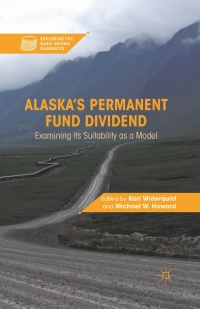




8 Assume the following information for a company that produced and sold 10,000 units during its first year of operations: Per Year 1 points Per Unit $ 200 $ 68 $ 50 $ 11 $ 8 Selling price Direct materials Direct labor Variable manufacturing overhead Sales commission Fixed manufacturing overhead Skipped eBook $ 300,000 Print Using absorption costing, what is the company's net operating income? References Check 11 In its first year of operations a company produced and sold 70,000 units of Product A at a selling price of $20 per unit and 17,500 units of Product B at a selling price of $40 per unit. Additional information relating to the company's only two products is shown below: 1 points Product A $ 436,300 $ 200,000 Product B $ 251,700 $ 104,000 Skipped Direct materials Direct labor Manufacturing overhead Cost of goods sold Total $ 688,000 304,000 608,000 $ 1,600,000 eBook The company created an activity-based costing system that allocated its manufacturing overhead costs to four activities as follows: Print References Manufacturing Overhead $ 213,500 157,500 120,000 117,000 $ 608,000 Activity Cost Pool (and Activity Measure) Machining (machine-hours) Setups (setup hours) Product design (number of products) Other (organization-sustaining costs) Total manufacturing overhead cost Product A 90,000 75 Activity Product B 62,500 300 1 Total 152,500 375 2 1 NA NA NA The company's ABC implementation team also concluded that $50,000 and $100,000 of the company's advertising expenses could be directly traced to Product A and Product B, respectively. The remainder of its selling and administrative expenses ($400,000) was organization-sustaining in nature. How much of the company's total costs that would be included in its traditional absorption costing income statement should not be assigned to Product A or Product B by the activity-based costing system that the company uses for internal management purposes? 13 Which of the following is an example of a transaction driver? 1 points Multiple Choice Skipped Machine-setup hours. eBook Print Number of customer orders received. References Direct labor-hours needed to assemble a product. Engineering hours spent per product. 14 Assume that company makes only two products: Product A and Product B. The company's activity-based costing system has allocated $144,000 to an activity called machine setups. It is considering allocating the machine setups cost its products using either the number of setups or setup hours as the activity measure. It gathered the following data with respect to these two potential activity measures: 1 points Number of machine setups Number of setup hours per setup Product Product B 30 30 6 6 Skipped If the company uses number of setup hours as the activity measure, what is the activity rate for machine setups? eBook Multiple Choice Print References O O $11,825 O O $320 O O $350 O $12,000 $12,000 15 Activity Cost Pool Machining Machine setups Product design Activity Measure Machine-hours Number of setups Number of products Overhead Cost $ 300,000 $ 150,000 $ 78,000 Expected Activity 15,000 MH 200 Setups 2 Products 1 points Skipped Activity Measure Machine-hours Number of setups Number of products Product A 9,000 50 1 Product B 6,000 150 1 eBook Print Using the ABC system, how much total overhead cost would be assigned from all of the activities to Product B? References Multiple Choice O $261,500 $271,500 O $251,500 $301,500











